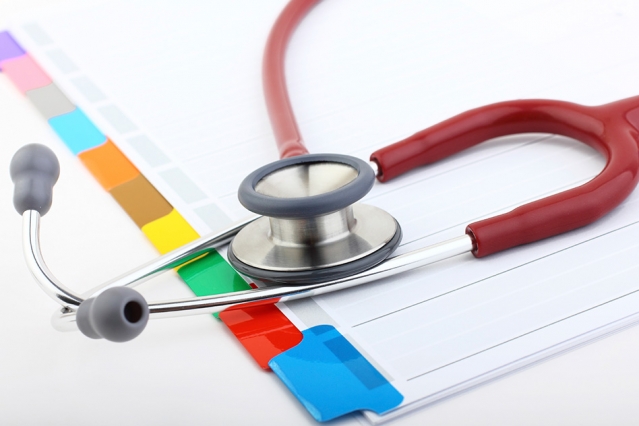Dr Jide Sowemimo
A. Introduction If you were to buy a brand-new Mercedes G-wagon today, as durable and rugged as that machine is, you won’t drive it around for years without taking it for servicing or oil change or whatever.
If you do, you are going to knock its engine. It will lose its spark quickly and look old and rickety. In my opinion, the human body is perhaps the most complex machine around. I love to see it that way. Now, like every machine, it is subject to wear and tear, to factory errors, to acquired errors, faults etc. So, it is absolutely important that you keep a keen eye on this complicated machine that is your body, especially once you cross 35 years. Unfortunately, most of us do not have it ingrained in us to see a doctor until we are very sick.
This is a terrible approach to health. Everyone (including children) should go for a comprehensive medical check at least once a year,
EVEN IF IT MEANS SAVING NKWOBI AND PEPPERSOUP AND BEER MONEY FOR TWO OR THREE MONTHS.
A few years ago, I got a call from one of my favorite friends. He had gone for a pre-employment medical and they found out he was HBsAG positive. He had Chronic Hepatitis B infection. He was treated and the infection went into remission. He probably isn’t aware of how fortunate he was. What would have happened if he hadn’t gone for those tests, is that he would have developed Liver Cancer maybe in his late 40s or early 50s. That’s invariably the natural course of hepatitis B infection.
Over the next few pages, I will share some information as recommended by the US Preventive Task Force on health checks we should go for regularly so that we can stay ahead of some common killers.
1. Cervical Cancer Screening Cervical cancer is not uncommon. You are never too young. I have seen a 32-year-old die of cervical cancer. Luckily it can be prevented, and if detected early, it is easily curable. The way to prevent and or cure it early is via regular PAP SMEARS. Every woman between the ages of 21 to 65 should be screened for cervical cancer once every 3 years with a PAP SMEAR. You can go a step further for your kids. Children, from the age of 9 years can be vaccinated against the viruses (HPV) that cause cervical cancer. These vaccines are available for both boys and girls.
a. In summary: I. Woman, are you older than 21 years? If yes, go for a PAP SMEAR once every three years. Put it in your calendar. Don’t let cervical cancer creep up on you. It is very preventable. ii. Do you have a child that is 9 years or older, let him/ her go for the vaccine against HPV (the viruses that cause Genital warts and Cervical Cancer). In women with a family history of breast, ovarian, or tubal cancer the recommendation is a bit different. Such women should be assessed by a physician and if the family history is concerning, they should consider going for genetic testing to see if they have the genes that increase the risk of breast cancer.
2. Breast Cancer Screening The USPSTF recommends that women between the ages of 50 and 74 years should go for a screening mammogram every 2 years. In women with a family history of breast, ovarian, or tubal cancer the recommendation is a bit different. Such women should be assessed by a physician and if the family history is concerning, they should consider going for genetic testing to see if they have the genes that increase the risk of breast cancer. Women who have these genes should talk to their physician so they can be commenced on medications that reduce the risk of breast cancer. This should be commenced at the age of 35 years. A mammogram is like an x-ray of the breast which can reveal breast cancer in its early stages. 3. Hepatitis B and C infection All adults should get screened for both infections. If you are positive for either, consult a gastroenterologist for appropriate advice and treatment. Babies born to Hepatitis B positive mothers should be vaccinated and also given Hepatitis B immune globulin within the first 12 hours of life to prevent them from getting infected. Chronic Hepatitis B or C infection are leading causes of liver cirrhosis and cancer.
3.
In summary:
HEALTH WATCH
i. Get screened for Hepatitis B and C. If positive, do something about it.
ii. ii. If negative, get vaccinated. Unrecognized, untreated Chronic Hepatitis B infection is a sure path to Liver Cancer. If you are negative and have never been vaccinated. You can ask about Hepatitis B vaccination. I know it used to be free at LUTH back in the day. It’s a three-dose series given over 5 to 6 months.
4. Hypertension. Every adult should have his/her BP checked. A single elevated BP does not always mean hypertension. It should be rechecked in another setting (preferably at home) when the person is at rest. BP consistently above 130/80 is considered to be stage 1 hypertension (American Heart Association). A lot of places still use the higher cut off 140/90. A person with an elevated BP should modify his/her lifestyle: Aerobic exercise Low salt diet Weight loss. If these measures do not control the BP, the person has to be on anti-hypertensive medications. No matter what if takes, get your BP under control. Uncontrolled hypertension significantly increase the risk for SUDDEN DEATH, heart attacks, Stroke, Chronic kidney disease, retinopathy (blindness) etc. In summary: i. Know your numbers. ii. Get your BP under control.
5. Diabetes Every adult should be screened for diabetes at least once a year. The best test is the HBa1C. This gives you an idea of your blood glucose level over the past 3 months. HBA1C less than 5.8% is normal 5.8 to 6.4% is pre-diabetes. It means the person is at high risk of becoming diabetic. 6.5% or more is definitely Diabetes. Diabetes is dreadful for a number of reasons. Like hypertension, you can be walking around with Type 2 diabetes for many years without knowing. It will silently destroy your kidneys, eyes, blood vessels and other organs. Such a person has a high risk of a heart attack, stroke, leg ulcer etc. Exercise also does a lot of magic. It improves your body’s response to insulin. This helps you achieve better blood glucose control. For the best results, do both aerobics and weightlifting. By lifting weights, you’ll increase your muscle mass. Bigger muscles take up glucose faster and more efficiently from the blood. For those knocking on 40, you can’t be eating swallow and rice and bread like say nothing dey happen. Something dey happen. Unless of course, you are sure you’ve got great genes and your risk of diabetes is low. The good news, friends, is that you can keep diabetes at bay with lifestyle modification. How? Exercise and diet. Type 2 diabetes is a combo of insulin resistance and carbohydrate toxicity. If you are at high risk, you just have to cut back on your carbohydrate intake. It is toxic (poisonous) to your body.
6. Screening for Colorectal Cancer Colorectal cancer is the third leading cause of cancer-related deaths in the US. Over 50,000 cases yearly. It is more common in the elderly but there has been a recent increase in the number of cases in younger adults. 10% of new cases are found in people younger than 50. So there’s a lot of benefit to screening for colorectal cancer. In people with a strong family history of colorectal cancer, the frequency is once every two years. In the general population it is recommended that it should be done once in 10 years from the age of 45. I am not sure how accessible screening colonoscopy is in Nigeria but a less effective alternative is: ‘stool for occult blood’. This is a test where you submit a stool specimen to a lab and the technician looks for hidden blood in your stool. It is less specific but it can give a clue as to whether something sinister is going on in your colon. Stool for occult blood can be done yearly. The screening test is via a colonoscopy, a procedure in which a surgeon introduces a ‘camera’ into your anus and runs it through your intestines to look for any suspicious growth. To reduce this risk, you want your LDL to be less than 120, HDL (the good cholesterol) to be more than 50 and Triglycerides to be as low as possible.
7. Lipid Profile aka Cholesterol Every adult should check his/her lipid profile at least once a year. The lipid profile checks for the levels good and bad cholesterol in your blood. The bad guys are : LDL and Triglycerides. The good guy is HDL. A lipid profile checks the levels of LDL, Triglycerides and HDL. Cholesterol serves several purposes in the human body but increased levels of bad cholesterol (LDL and Triglycerides) can block gradually blood vessels and over time cause a heart attack or a stroke. So again: i. Watch your diet. ii. Exercise. iii. Check your Lipid profile. Exercise does the double job of reducing LDL and Triglycerides and 13 ¬ also increasing HDL. If diet and exercise can’t correct an abnormal lipid profile, there are medications that can do this. But exercise and diet are by far the better options. Greasy, oily and fried food increase LDL. Fast foods (KFC, Mr.Bigs etc) increase LDL. Checking will give you an idea of where you stand and what you need to do.
8. Screening for Depression the USPSTF recommends that every adult should be screened for depression every year. This screening, if concerning, should be followed up with visits to professionals who can competently treat depression. The screening tool most commonly used is the PHQ-9, downloadable online but interpreted by experts. Any score above 4 is concerning and such a person should see a psychiatrist. It is important that we destigmatize (not sure there’s any such word) mental illness. The reality is that anyone can be depressed at any time although a psychological stressor can increase the risk. Pregnant women and postpartum women (women who just had a baby) are at higher risk of depression. Adolescents, starting from the age of 12 years, should also be screened for depression at least once in a year as anyone can be depressed. The human mind is fragile. The line between sanity and the other side is unbelievably thin. Even some of the most accomplished people on earth do suffer from depression. So, bottom line: i. Get the PHQ-9; complete it and see if you need further help. Do this at least once a year.
9. Smoking and alcohol. Does anyone remember those adverts of Rothmans cigarettes when we were growing up? First, they were compelled by the Federal Ministry of Health to add this statement after their adverts: “Smoking is dangerous to health”. Later they changed it to something more politically correct, “smokers are liable to die younger” or something like that. Smoking, from the little I know, is one of the most dangerous habits you can indulge in. It’s like setting yourself on fire…. just that in this case it’s a slow-burning fire. But it will surely burn you. If you belong to the lucky cohort of smokers, you may escape the numerous cancers associated with smoking, but you can’t escape COPD (Chronic Obstructive Pulmonary Disease). COPD is nasty: you just keep coughing and coughing like crazy. Smoking significantly increases the risk for lung cancer. It increases the risk for lip cancer, oral cancer, bladder cancer, larynx cancer, stomach cancer, rectal cancer, pancreatic cancer…Which one remain abeg? Vaping is just as dangerous (if not more dangerous). Smoking Marijuana can cause some severe forms of COPD. It increases the risk of mental illness. For me, the worst part of weed is the amotivation that comes with it. Ganja people just generally like to loaf around doing nothing and feeling everything is alright. It is the effect of weed. The USPSTF recommends that smokers seek help from smoking cessation programs. Unhealthy consumption of alcohol is equally toxic. It increases the risk of liver cirrhosis and cancer, pancreatic cancer, esophageal cancer. Alcohol can be addictive and can affect performance at work and your relationships.
The recommendation is to use alcohol moderately Pregnant women should not go near alcohol. Alcohol consumption in pregnancy has devastating consequences for the baby. Fetal alcohol syndrome is characterized by dysmorphic facies, intellectual disability (mental retardation) and aggressive behavior.





